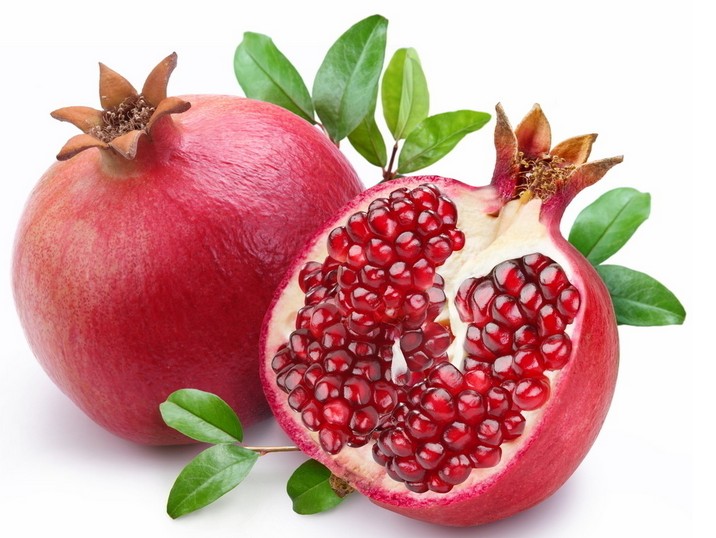Years ago pomegranates were considered exotic. Like Mandarin oranges they were precious imports brought over on ships for a once-a-year treat at Christmas. But in recent years, as you might have noticed, the pomegranate has been designated a “superfood” (foods with the highest nutritional values). And it truly is super with its high dietary fibre and folate, vitamin C and vitamin K. Since ancient times, the fabulous fleshy seeds were used for fertility, but it turns out they do so much more.
Five reasons the pomegranate is a superfood:
1. You can reduce joint pain and inflammation with pomegranates. At the source of any joint pain is always a cascade of enzyme reactions that lead to the body triggering inflammation and ultimately pain. Pomegranates have been shown to halt the enzyme reactions before the inflammation is able to occur and reduce pain as a result.
2. Pomegranates have been used to treat malaria. In ancient Indian culture, this was the only remedy that was available for the treatment of malaria because of its powerful anti-parasitic properties. Remember to stock up on pomegranates before your next tropical destination vacation to ward off those pesky parasites.
3. Pomegranates are anti-viral. Protect yourself during those winter months by stocking up on pomegranates. The anti-viral component of these fruits is so powerful that it’s been studied as an alternative treatment of HIV, with promising results.
4. Pomegranate plant flowers can be used to lower cholesterol. Pomegranate flowers contain an oil called oleanolic acid that improves the metabolism of free triglycerides found in the blood. These triglycerides are what lead to the collection of LDL cholesterol and blockage of arterial walls leading to atherosclerosis (hardening and narrowing of the artery walls) increasing your susceptibility to heart disease.
5. Pomegranates protect your cardiovascular system. For plaque to begin to form on your arteries, there first must be damage to the arterial walls caused by free-radicals. Pomegranates contain powerful antioxidants that eat up these free radicals and target the lining of your blood vessels and prevent them from damage. The ultimate prevention food!
Source; chatelaine



 It is a well documented fact that an association exists between breakfast and weight management, however a new study has found that previous researchers designed to find links between these two things often do not prove that one causes the other.
It is a well documented fact that an association exists between breakfast and weight management, however a new study has found that previous researchers designed to find links between these two things often do not prove that one causes the other.